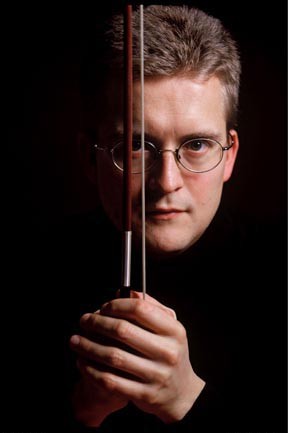San Francisco Symphony at Carnegie Hall
Michael Tilson Thomas Conducts
By: Susan Hall - Mar 27, 2010
Michael Tilson Thomas, ConductorSan Francisco Symphony
Christian Tetzlaff, Violin
Post-Scriptum New York Premier by Victor Kissine
Violin Concerto in D Major, Opus 35 by Pyotr Ilich Tchaikovsky
Valses Nobles et Sentimentale by Maurice Ravel
Tasso, lamento e triofonoby Franz Liszt
March 25, 2010
Carnegie Hall, New York
www.carnegiehall.org
Michael Tilson Thomas says that his work is about audacity. "Audacity, that 's the key. Keeping things ardent and special. The program he conducted with the San Francisco Symphony at Carnegie Hall on March 25th was audacious music at the highest emotional level.
Tilson Thomas is a conductor inspired by poetry. He quotes Rilke: "I live my life in growing rings, which stretch themselves out through the things of the universe, Perhaps I will not complete the last ring, but I will try."
The New York Premier of Post-Scriptum by Victor Kissine opened the program. It is a series of rippling musical rings, responding to Charles Ives The Unanswered Question, which, the composer points out, "does not end."
Even in the most sensitive of sound venues, Carnegie Hall, we strained to hear the first notes of Post-Scriptum. Was the sound coming from the very top notes of a violin, veering to or screech scratch? Or was it the light touch of a wire brush on a percussion instrument? Was it sound at all? Our interest was immediately peaked.
This delicious piece became above all a thing of beauty. We are drawn in by the dynamic swells of the orchestra, from the barely perceptible notes that emerge from silence, to the bold blasts of the brass. No matter how intellectual the construct may be, it tugs at us, at first simply to listen and then to give ourselves over to the loveliness of the lines.
The composer took his bows to a standing ovation. Kissine is clearly accessible in the hands of Tilson Thomas who commissioned the piece and to whom it is dedicated.
Extraordinary dynamics and the range of the violin were on brilliant display as soloist Christian Tetzlaff took over Tchaikovsky's Violin Concerto in D Major. Tetzlaff was compelling as he ranged wide in runs and lovely phrases. His virtuosity and sensitivity, on display at Tanglewood last season, is brought to the Tchaikovsky. A certain modesty and restraint does not impede his great passion. His performance has been aptly described as "music traveling beyond technique."
After the intermission we were romanced with Ravel waltzes. While the 3/3 waltz time at first seemed tame, shortly Ravel's dramatic harmonic relationships emerged. In the softer passages we are swept yet again by sensuous phrases. It's hard to believe that these waltzes were greeted with howls of protest and derision. The 2010 Kissine premier did not get Ravel's 1911 treatment.
The Liszt which concluded the program is dedicated to the 16th century Italian poet Torquato Tasso. Tasso was one of the most widely read poets for two centuries. With Thomas, everything is deliciously interconnected, like following a thread of silk through a maze.
It took some time for Liszt to gain confidence as an orchestral composer and August Conradi, a composer of light music, helped him with this composition.
This symphonic poem takes its inspiration from a poem by Byron, The Lament of Tasso. "It tries the thrilling frame to bear, And eagle-spirit of a child of Song...For I have battled with mine agony and made me wings wherewith to overfly the narrow circus of my dungeon wall..."
Sketches of this symphonic poem exist from 1841-5. The first version was completed in 1849, orchestrated by Conradi and performed as an overture to Johann Wolfgang von Goethe's play Torquato Tasso. It was revised in 1850-1, and given its final dramatic and arresting version by a newly confident Liszt in 1854.
Tilson Thomas chose as an encore a selection from Sylvia by Leo Delides. He dedicated the music to all brave women. Sylvia is in love with a simple shepherd in play by Tasso. (A phonautogram of this play's opening lines is the oldest known audible record of human speech).
Sir Frederick Ashton, who choreographed Sylvia, described the play. "Boy loves girl, girl captured by bad man, girl restored to boy by god." The familiar barcarolle from Sylvia became more familiar in commercials for British Airways.
Why should it surprise that Tilson Thomas, a poetic conductor, should turn twice to interpretation of one of the best known European poets? He brought us muscular music in the service of beauty. The audience kept rising from their seats to give standing ovations.
The Goddess Diana's hunting horns in Sylvia finally blew us away. The music had extinguished the far off night, as poet Cavafy, a favorite of the conductors', has written.
An evening of extraordinary music from the San Francisco Symphony under Tilson Thomas' baton.


